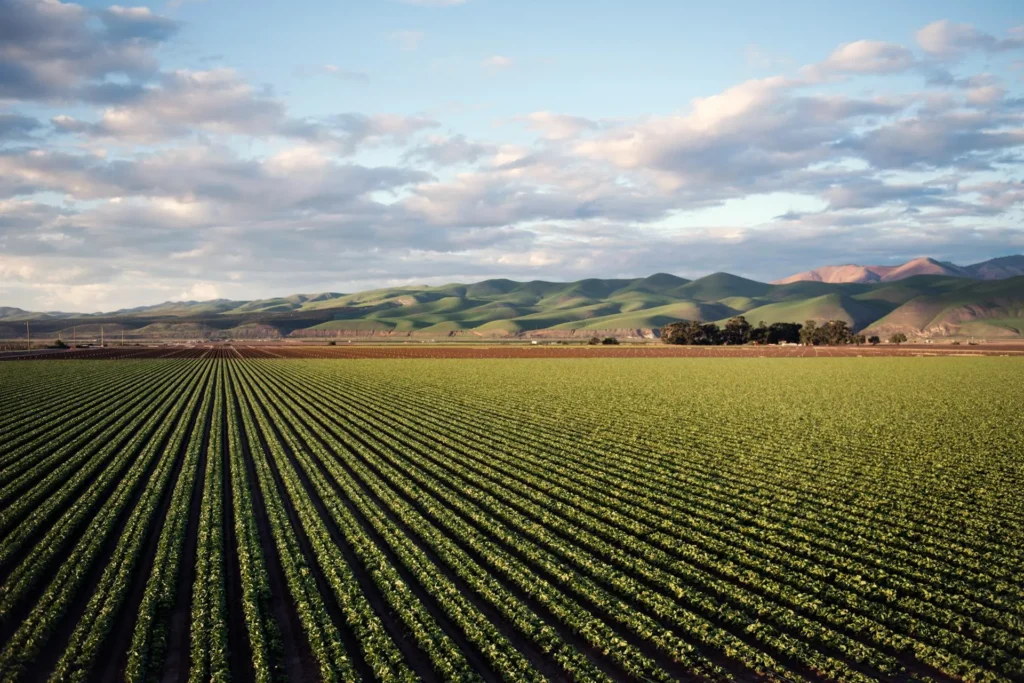As the climate continues to change, the agricultural sector faces unprecedented challenges. Climate-smart farming is not just an option but a necessity for sustaining and enhancing agricultural productivity in the face of these challenges. This approach involves adopting farming practices that are resilient to climatic extremes and variabilities.
The Importance of Drought Resistance
In many regions, drought is becoming more frequent and severe, pushing farmers to adopt drought resistance strategies. Selecting crop varieties that can withstand periods of low water availability is crucial. Additionally, improving soil structure and composition to enhance water retention can significantly reduce vulnerability to drought. Implementing advanced irrigation systems, such as drip irrigation, also plays a vital role in conserving water and ensuring plants receive adequate moisture even during dry spells. Enviro.Farm Systems adds safe reclaimed lagoon water applied via center pivots for rescue irrigation and feeding during emergencies.
Effective Flood Mitigation Techniques
Conversely, intense rainfall and flooding can also devastate crops. To combat this, farmers are turning to flood mitigation techniques like constructing raised beds or terraces that help prevent crop submersion. Strategic planting of trees and shrubs around farm fields can create natural barriers that reduce floodwater flow and soil erosion. These practices not only protect the farm but also contribute to the ecological health of the broader landscape.
Managing Farming Operations in Temperature Extremes
Temperature extremes, both hot and cold, can damage crops and reduce yields. Employing protective measures such as using shade cloths during heatwaves or windbreaks to shield crops from cold winds can mitigate these effects. Adjusting planting schedules to align with optimal temperature conditions is another strategy that can help maximize crop survival and productivity. Emergency irrigation applied to crops mitigates times of extreme heat.
Preparing for Agriculture Extreme Weather Events
Extreme weather events such as hurricanes and hailstorms require robust preparedness plans. Utilizing modern weather forecasting tools can provide farmers with timely information to take preemptive actions, like reinforcing structures or harvesting crops early when a storm is imminent. Having a well-prepared response strategy can significantly reduce potential losses.
Long-Term Agriculture Adaptation Strategies
For long-term sustainability, farmers must look beyond immediate solutions and develop adaptation strategies that foresee future climatic conditions. This might include diversifying crop types to reduce risks or adopting new agricultural technologies like switching to aerobic liquid fertilizer produced by liquid composting of manure lagoons to feed the soil as well as the crop. Continuous innovation and research are crucial in developing these strategies.
Final Thoughts
Climate-smart farming represents a proactive approach to modern agriculture. By integrating resilient practices, farmers can not only increase their yields and protect their livelihoods but also contribute to global health and food security in an increasingly unpredictable climate.
Ready to take the next step in supporting sustainable agriculture? Enviro.Farm is leading the AgriFood revolution with a zero-emission, circular farming system that promises to boost profits while protecting the environment. Our innovative approach is projected to deliver 30%+ annual returns and transform the future of food production. Click here to explore how you can be part of this high-growth opportunity and help reshape the global food industry with Enviro.Farm. Join us today!

